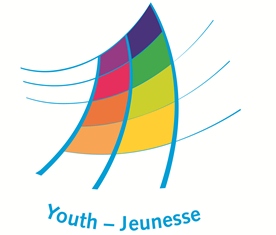About youth policy
 The essentials of youth policy
The essentials of youth policy
A video by the partnership between the European Commission and the Council of Europe in the field of youth.
 So what is youth policy?
So what is youth policy?
The purpose of youth policy is to create conditions for learning, opportunity and experience, which enable young people to develop knowledge, skills and competences.
This allows young people to be actors of democracy, integrate into society and, in particular, play an active role in both civil society and the labour market.
The key measures of youth policies are to promote citizenship learning and the integrated policy approach.
Source: Insights into youth policy governance, November 2018, Partnership between the European Commission and the Council of Europe in the field of youth.
 Youth policy is:
Youth policy is:
“Government’s commitment and practice towards ensuring good living conditions and opportunities for the young population of a country” (Finn Denstad, Youth Policy Manual, 2009)
... about standards, but also methodology (principles, co-operation), target groups/stakeholders, scope (areas of intervention), budgets…
... a strategy implemented by public authorities to provide young people with opportunities and experiences that support their successful integration into society and enable them to be active and responsible members of society and agents of change (Council of Europe CM/Rec(2015)3)
... about opportunities, participation, inclusion, autonomy, solidarity, but also well-being, learning, leisure time, employment...
... approaches ranging from regulation to emancipation, from prevention to intervention, from proactive to reactive, problem oriented to opportunity focused, from paternalistic to open...
... public authorities working with those actors involved in informing, developing, implementing youth policy such as: youth councils, youth NGOs, interest groups, youth groups, youth workers, youth researchers, young people, schools, teachers, employers, medical staff, social workers, faith groups, the media, and many more.
... a dynamic process with systems and structures that change constantly.
 So who decides?
So who decides?
Each country decides what is to be considered as youth policy. It is fair to say that a country's youth policy always mirrors how a government looks at its young people.
Some national youth policies include anything that affects young people, including social protection, gender equality, unemployment, formal education, health, housing, and so on. Other youth policies are much narrower in scope.
The Council of Europe promotes youth policies that are based on human rights and democratic standards, opportunity-focused, involve young people in their formulation and implementation, create conditions for learning, opportunity and experience, and are based on robust data collection. They should value the role of youth work and non-formal learning, stress the importance of a cross-sectoral approach, and emphasise the need for dialogue with young people.
Learn more about the youth policies of the 50 states parties to the
European Cultural Convention:
For information from the CDEJ members >
For information from the European Knowledge Centre for Youth Policy >
If you want to find out more about youth policy, consult our resources:



